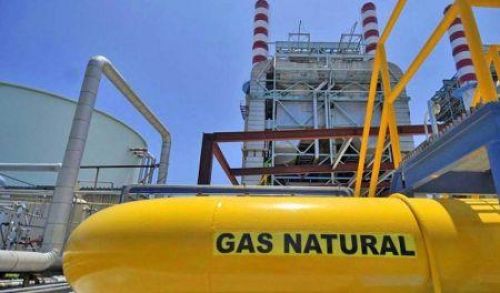
Ghana is carrying out a major overhaul of its power system and shifting heavily toward domestic natural gas for electricity generation, consulting firm Deloitte said in a report.
The strategy, dubbed the “Gas-to-Power Transformation” program, could reduce power generation costs by up to 75% compared to using fuel oil or light crude oil, the firm stated in its “Analysis of the 2026 Budget Statement of the Government of Ghana,” published in November 2025 and relayed by Ghanaian media on Monday, November 24, 2025. This focus is highlighted among the energy reforms promoted by the government in the 2026 Budget.
The government plans to increase the integration of domestic gas into the electricity mix and replace the imported fuels traditionally used in its power plants, Deloitte said. Data published by Global Legal Insights in December 2024 showed that Ghana generated approximately 24,264 GWh of electricity in 2023. Of that energy, 61.53% came from thermal power plants, which are predominantly run on fuel oil and light crude oil. Hydropower accounted for 37.86% of the total, while other renewable energy sources made up 0.61%.
The government’s strategy is predicated on increasing the domestic gas supply. According to the report, the Jubilee and TEN fields have ramped up their deliveries, which rose from 110 to 130 million standard cubic feet per day (MMscfd) in 2025. Partners in the OCTP project, led by ENI and Vitol, have also increased their processing capacity from 240 to 270 MMscfd. New agreements also provide for the delivery of 150 MMscfd of gas dedicated to power plants.
The document explains that through this evolution, Ghana hopes to progressively transition existing power plants to this less expensive energy source. The use of gas, which is cheaper than fuel oil and light crude oil, is intended to help ease the financial strain on electricity production in a sector that is a burden on public finances.
The International Monetary Fund (IMF) estimates Ghana’s annual energy sector deficit could reach $2.2 billion by the end of 2025. The 2025 Budget allocated 27.1 billion cedis (approximately $1.7 billion) to cover this shortfall, which is linked to production costs and sector arrears.
Deloitte also noted that the oil and gas sector underperformed in 2025, generating revenues of 5.9 billion cedis (about $530 million) over the first three quarters, falling well short of the 12.4 billion cedis ($1.116 billion) forecast.
The report cautioned that implementation challenges remain, particularly concerning infrastructure timelines, upstream supply reliability, and financing modalities. It also specified that it is important for the government to guarantee all gas investments, including the commitment to supply 70 million cubic feet of gas per day to the power sector, a volume described as essential for reducing the sector’s debt and lowering long-term costs.
